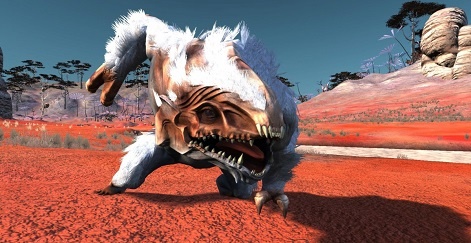Kenshi has been in development for half of my lifetime. One of the first 10 games to feature on Steam’s then-exciting Greenlight program in 2012, the sandbox squad-based RPG finally left Early Access this week.
The games space has seen dramatic twists and turns in those long years. In fact, it's astonishing that its developer, Lo-Fi Games, not only survived but also maintained an active community for over a decade.
“Our own dedication was the key,” says CEO and head developer Chris Hunt, on maintaining the game’s audience. “Players got disheartened and suspicious whenever we had to go a long time without updating, and whenever another prominent early access game was abandoned by its team.
“But over time our game updates just never stopped coming, never stopped improving and fixing the game, and people saw that I guess, saw that we meant business no matter what.”
Yet the games industry moves fast, with rapidly evolving expectations from players and developers. Hunt concedes: “Your technology ages. We’ve upgraded the game engine and worked around its limitations a lot but it’s pretty much pushed to its limit now, only a major rewrite can improve it further.”
Very little about the core game has changed, save for a very early trend away from early-noughties design tropes.
“In its very early days it was going to be about guns and ranged combat, but we're talking about the early 2000s there”

“End up like mobile”
In 2013, Kenshi was accepted on Steam’s newly-announced Greenlight platform. At the time, the program seemed a useful way to get unheard-of titles into Steam’s notoriously walled garden - but Greenlight is now widely considered something of a disaster.
“For me personally, it’s worked great, but over time I’ve seen it increasing to a flood of new games, and now there's a lot of fakes, cash-grabs and trashy clones in there. I’m a little worried that it’s going to end up like the mobile app stores.”
Perhaps surprisingly, Kenshi found success in Japan, charting at No.1 on Steam in the country after announcing a December 6th release date.
“The game has some influences from Japanese culture which I think must have attracted them a bit. Also, Japanese players aren’t so shy of having lots of character stats and numbers in the game, which is something I like.”
“The open world aspect is something you don’t see a lot of in Japanese games, so I like to think it’s something I got them into.”
Hunt had few words when asked what the team learned from over a decade’s work, and commented: “Not much, but if you keep your fans happy and treat them with respect then they will give the same back.”
“We will continue supporting Kenshi for as long as needed and then start work on a new secret project”













